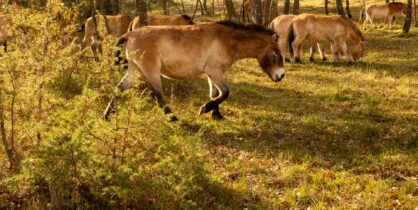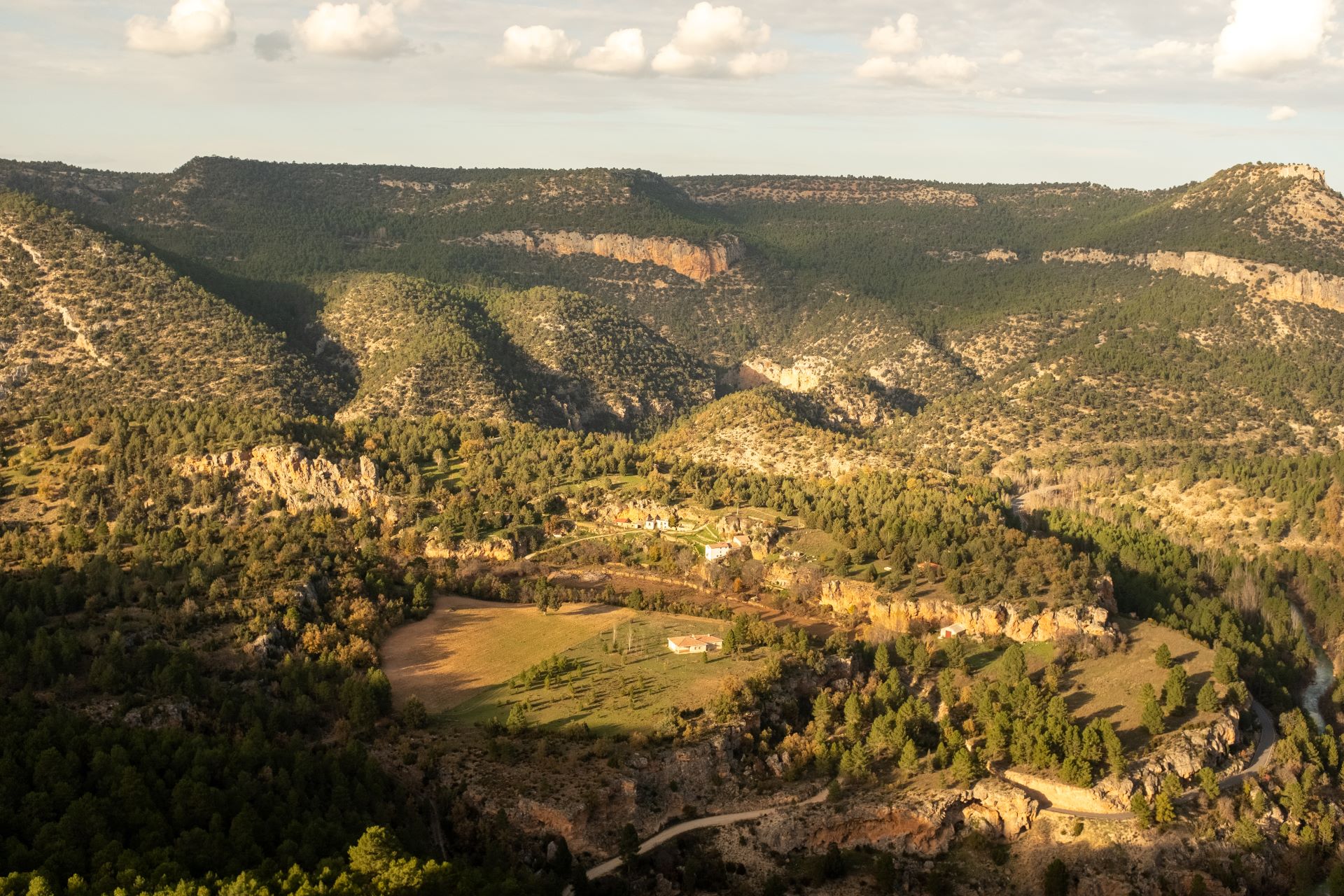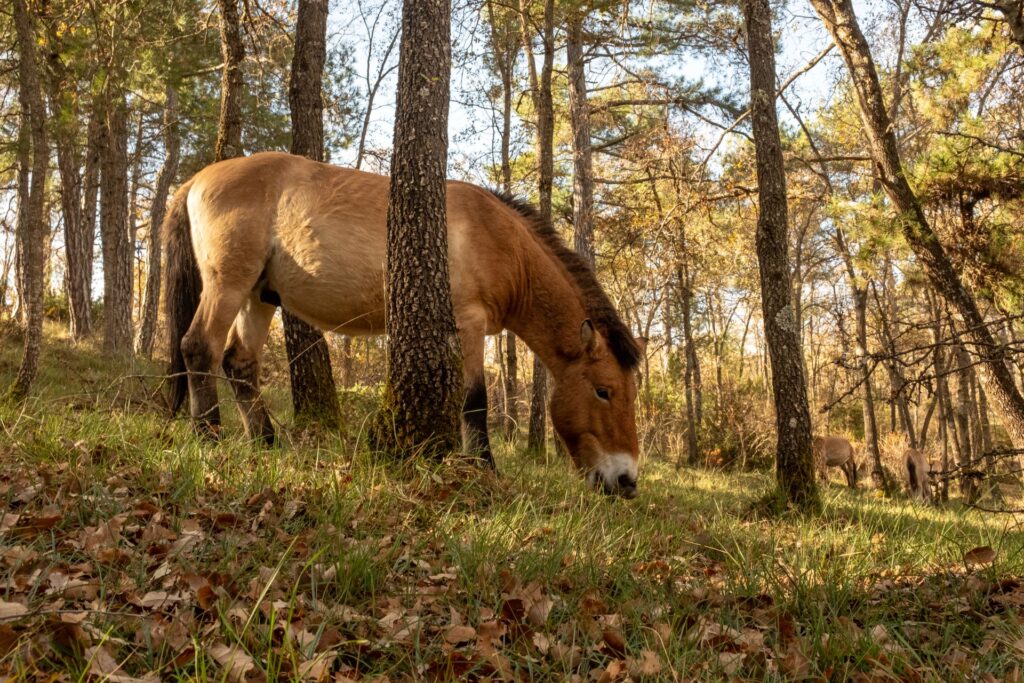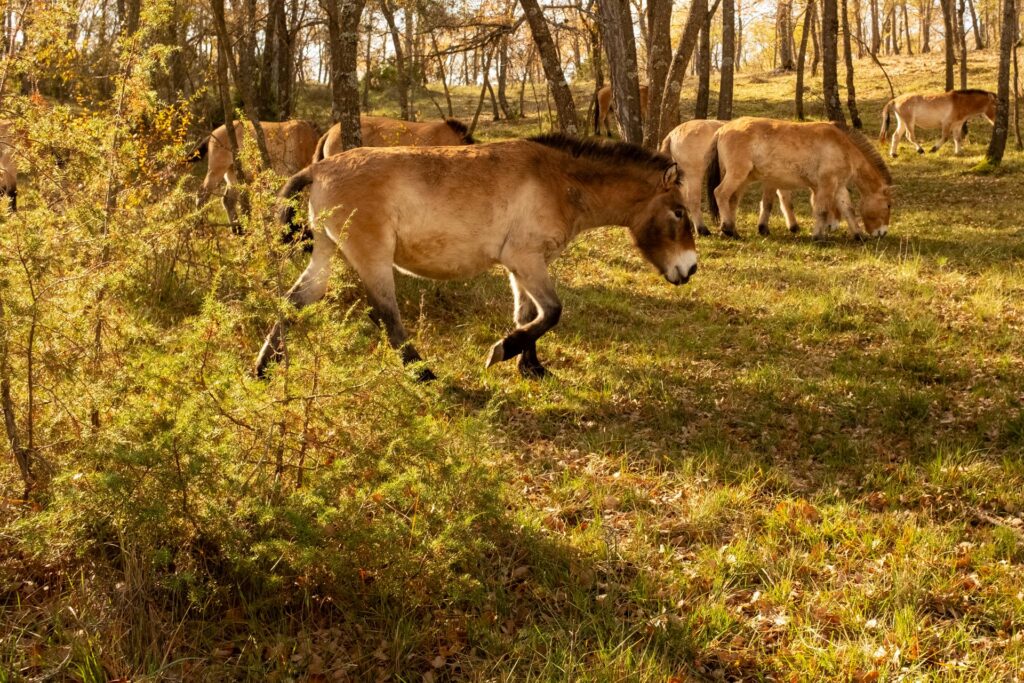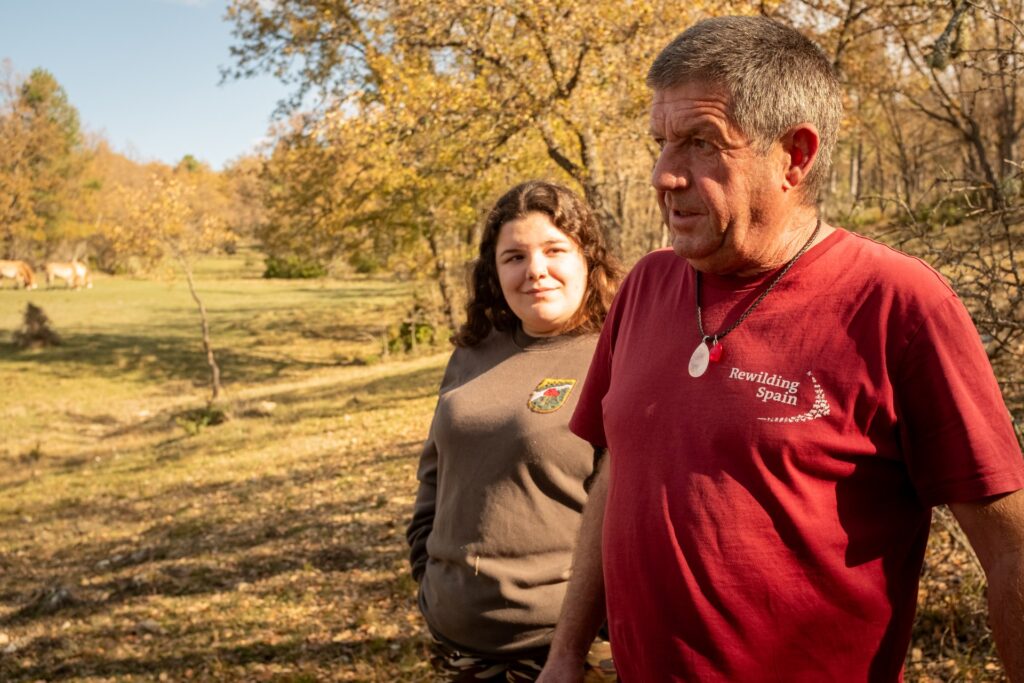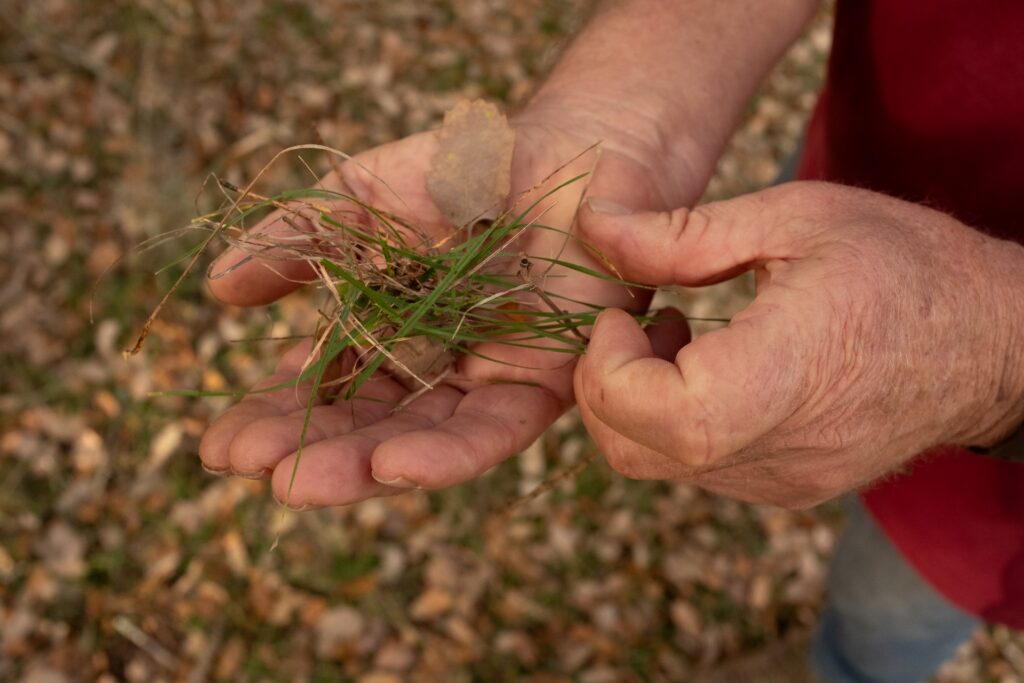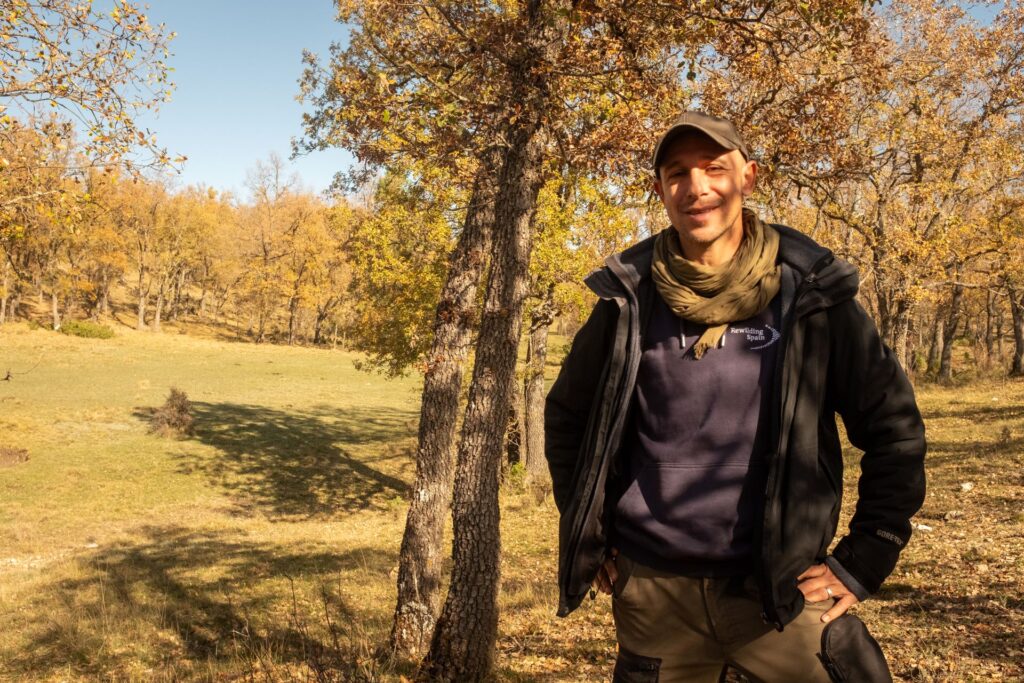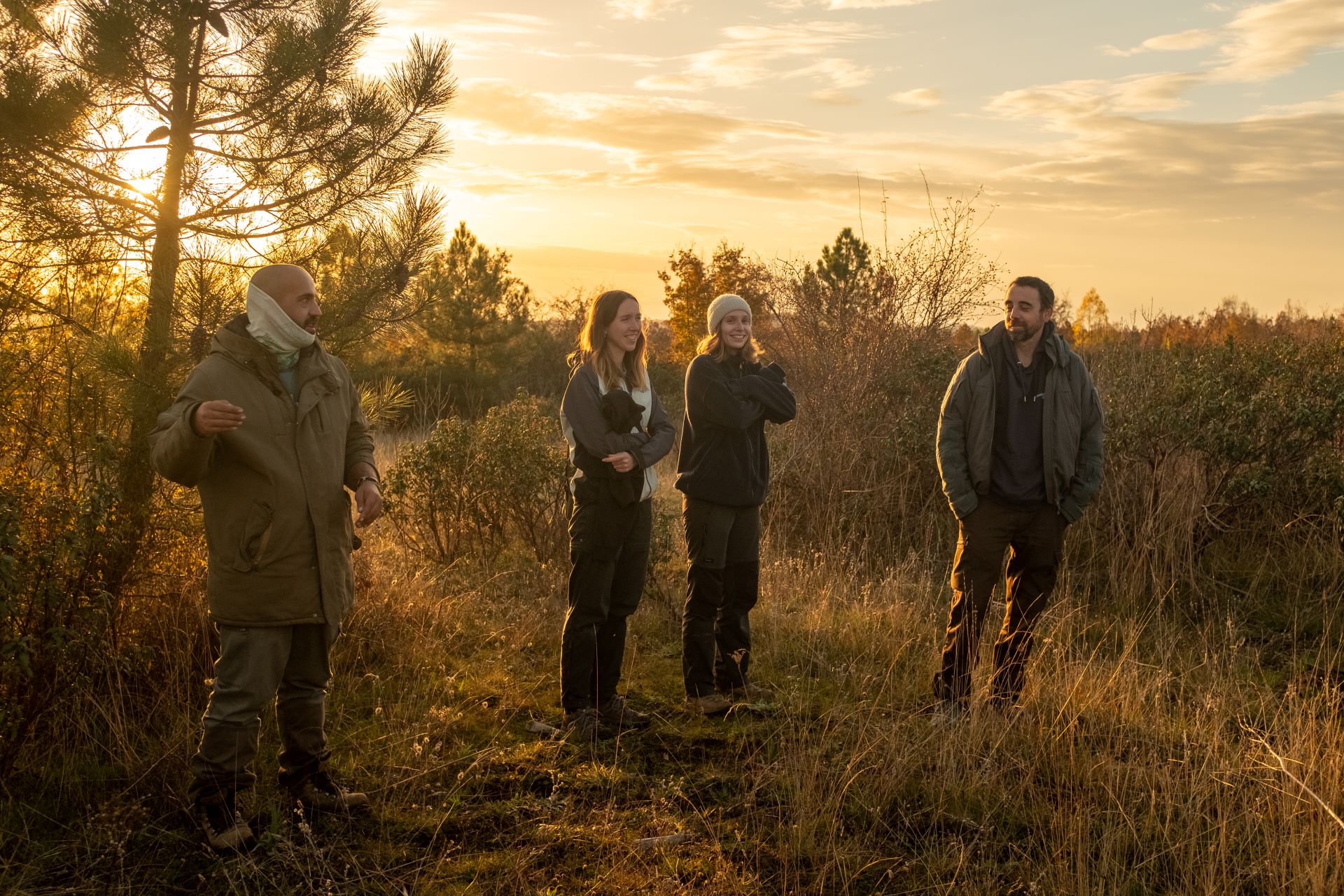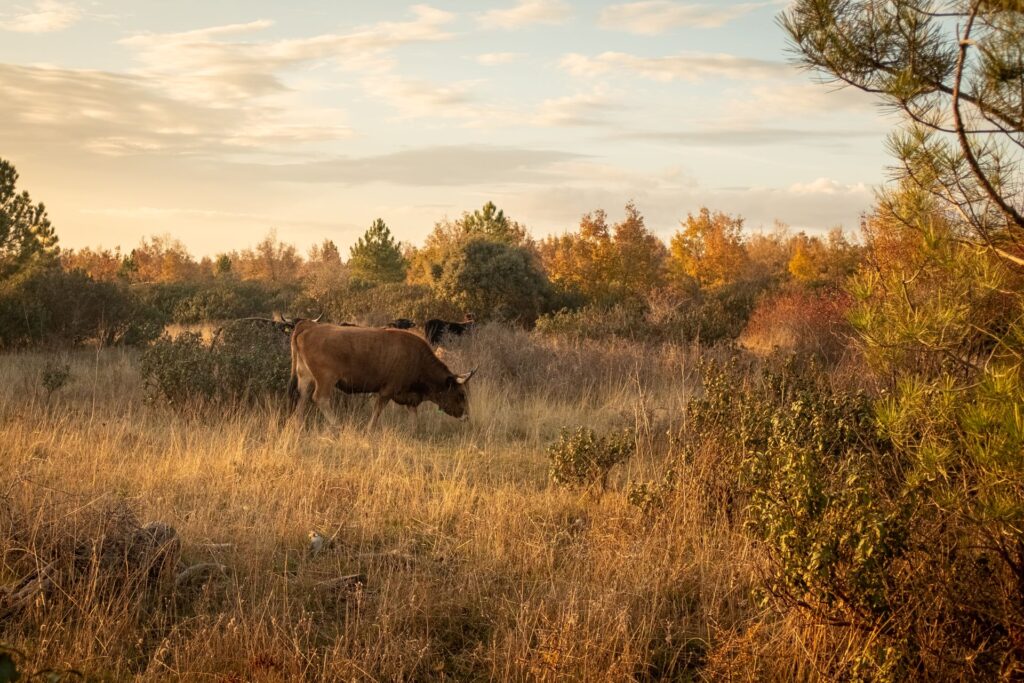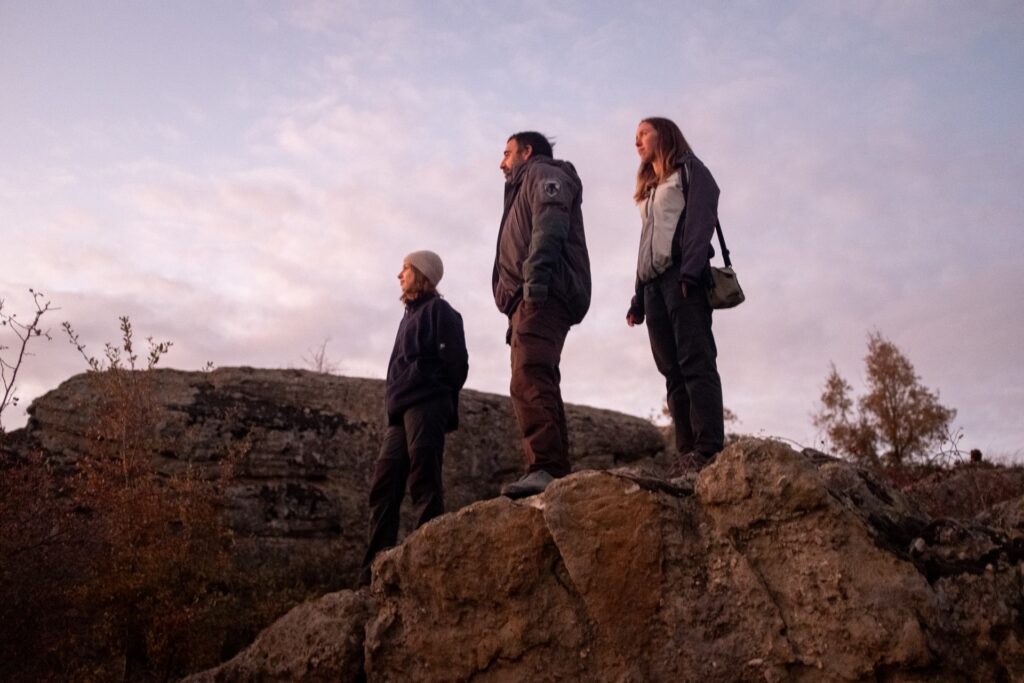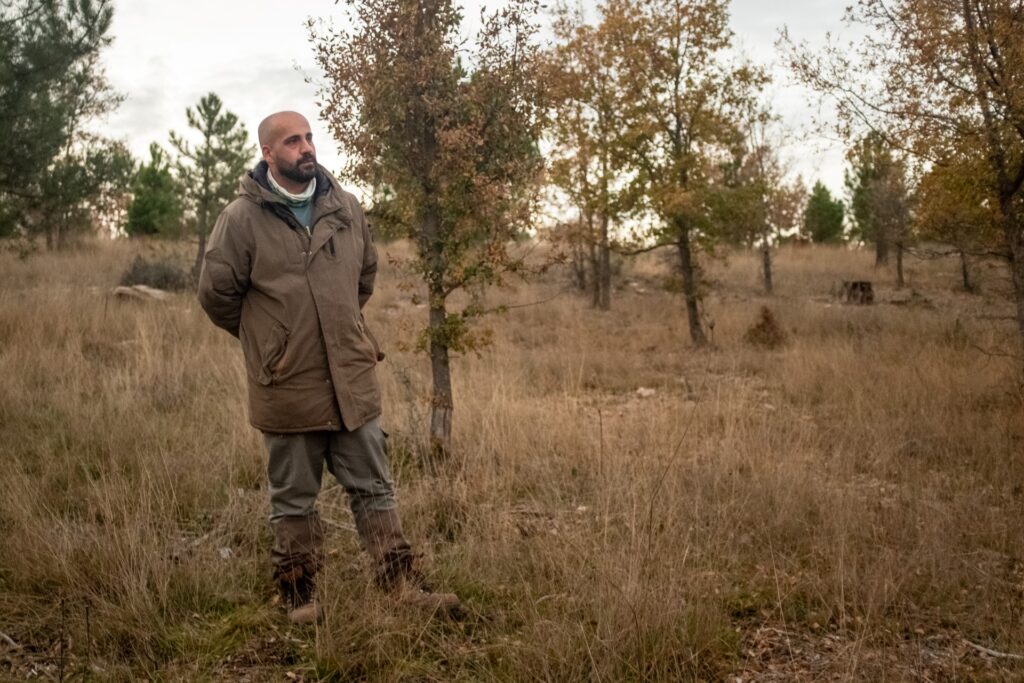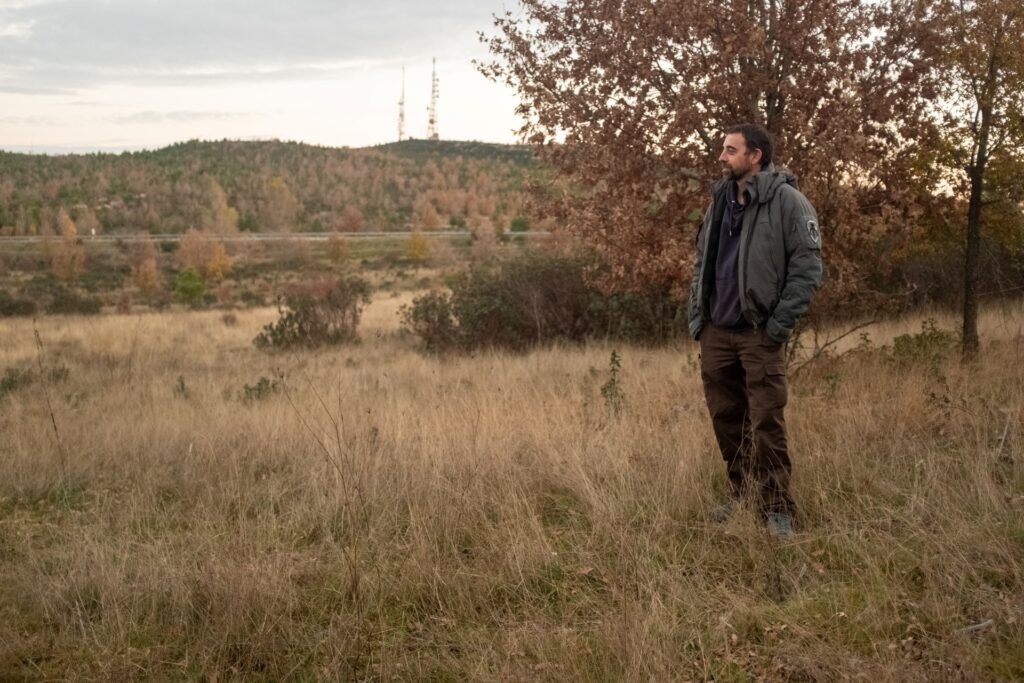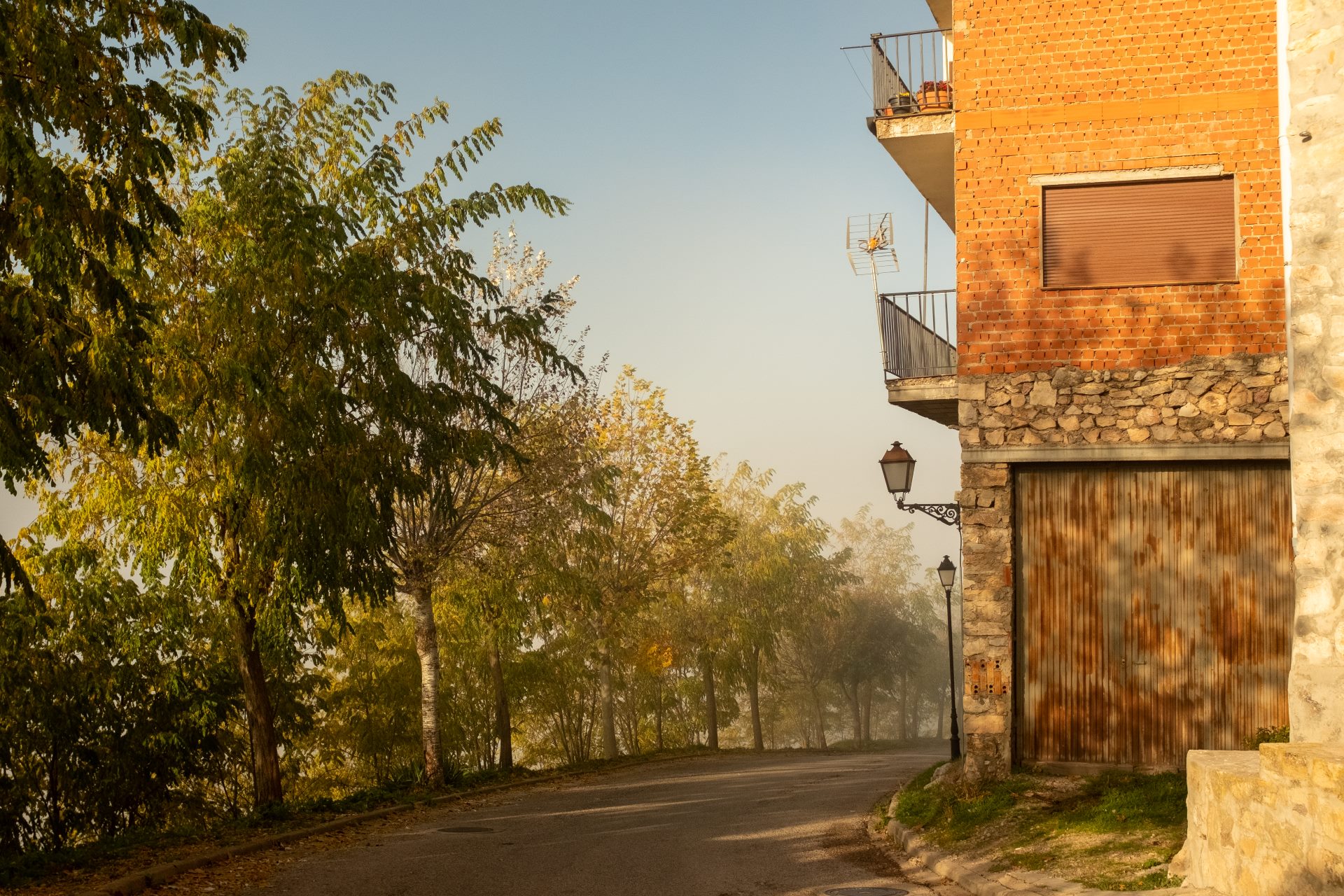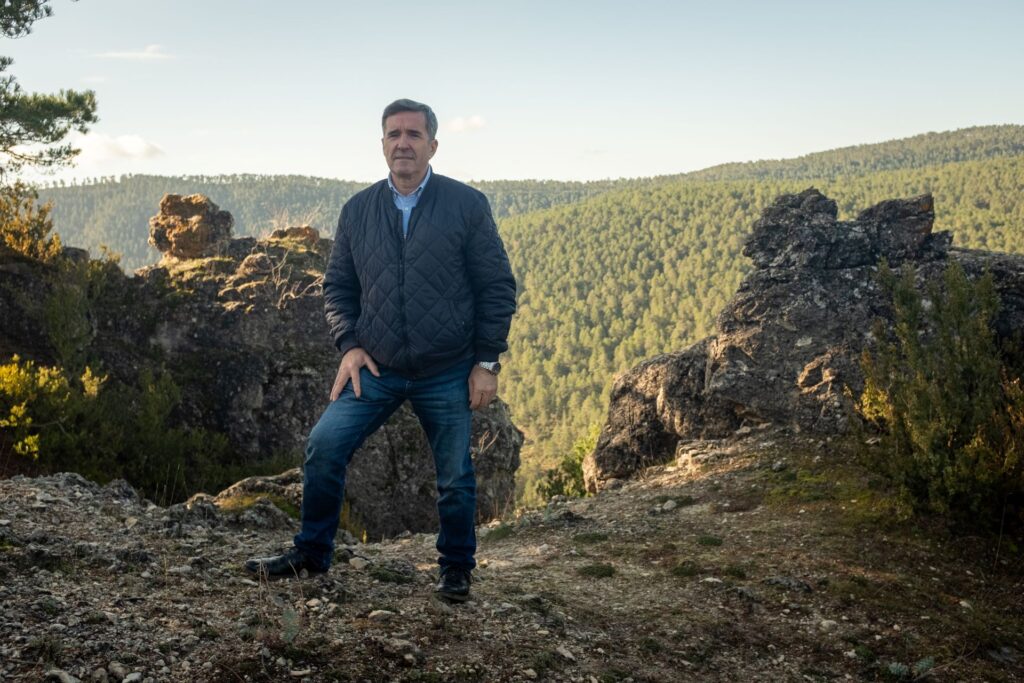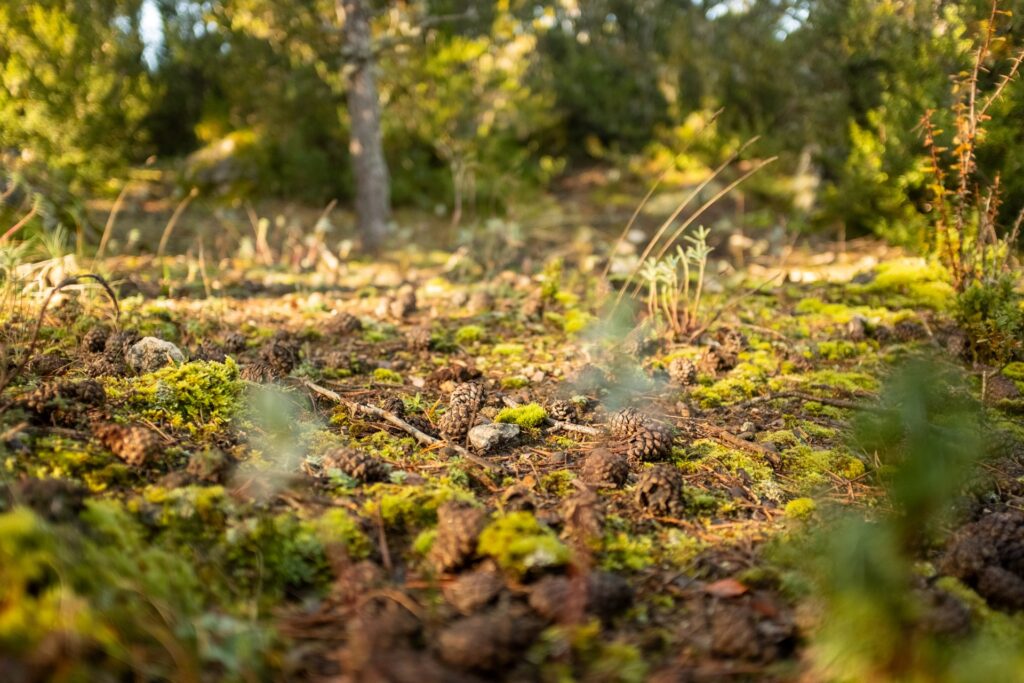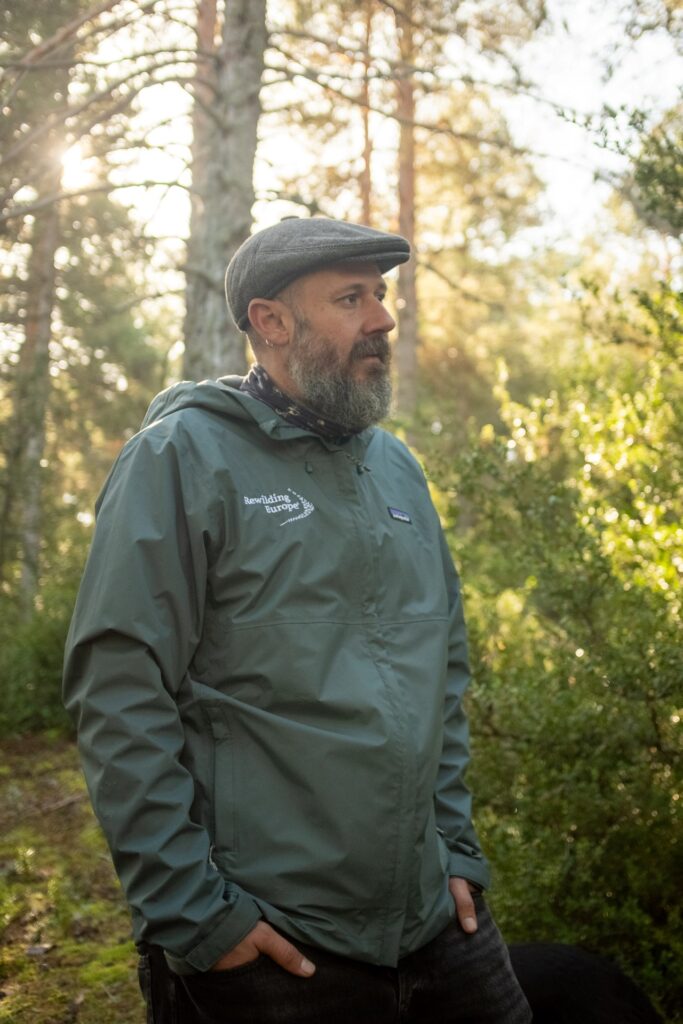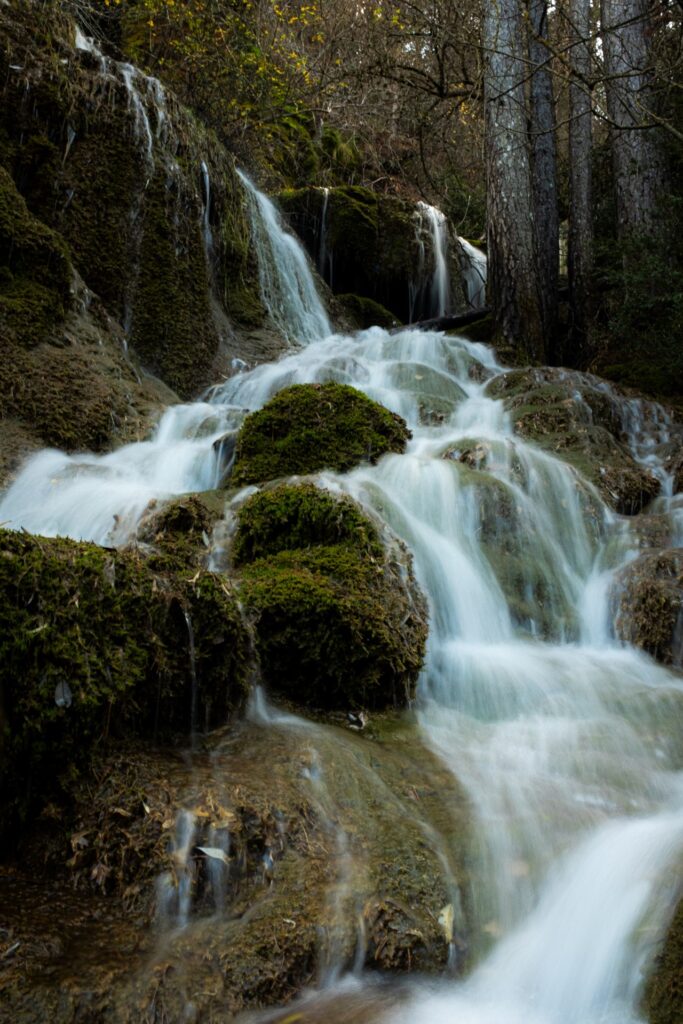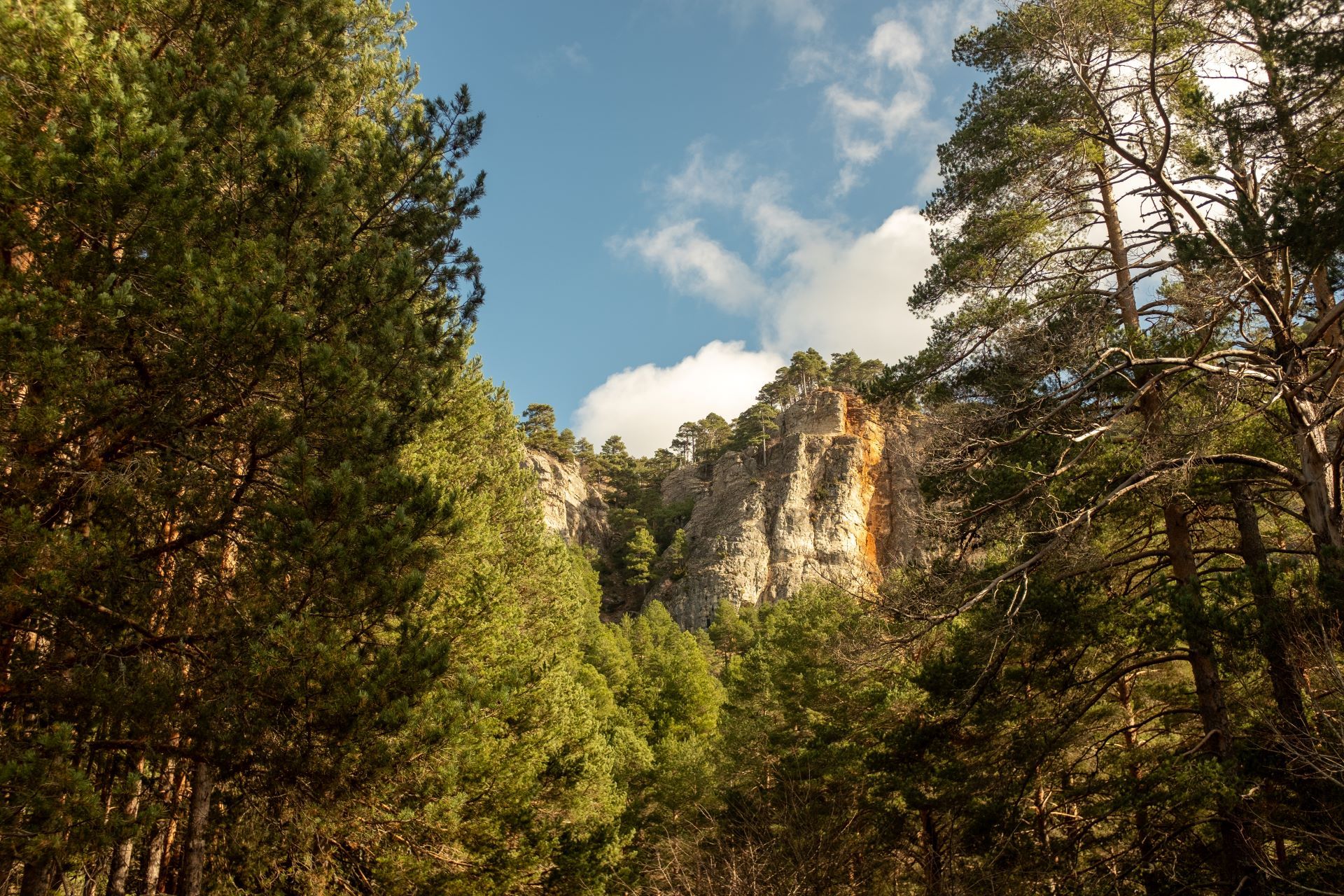How rewilding shapes landscapes, communities in rural Spain.
In a far-flung corner of Spain’s Castilla-La Mancha, near the source of the river Tagus, wild horses and wild cows are roaming the forests for the first time in thousands of years. Their presence in the area, one of Spain’s most depopulated, shapes the natural landscape. By grazing on shrubs and grass, both of these animals help to create natural firebreaks in the forests, making local villages more resilient to such climate hazards. They also encourage biodiversity and more mixed forest systems.
As well as restoring natural ecosystems, the rewilding initiative is bringing socio-economic benefits to local communities by way of job opportunities and as a source of income resulting from tourism. In November 2024, REVOLVE joined Rewilding Spain for a tour of three initiatives in the region: the rewilding of Przewalski’s horses, the integration of wild cows genetically similar to the ancient aurochs into grassland, and a carbon credit forest regeneration scheme.
